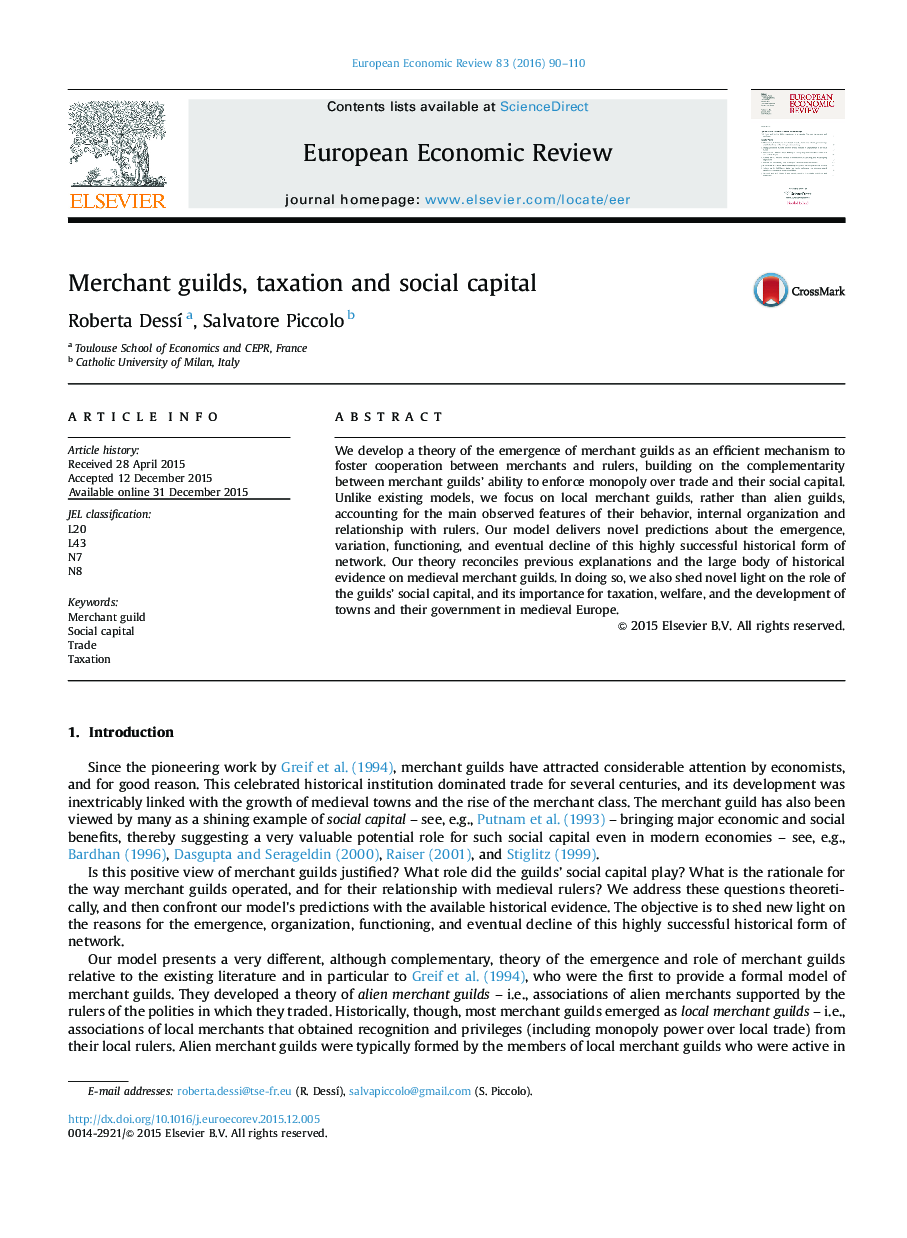| Article ID | Journal | Published Year | Pages | File Type |
|---|---|---|---|---|
| 5066527 | European Economic Review | 2016 | 21 Pages |
We develop a theory of the emergence of merchant guilds as an efficient mechanism to foster cooperation between merchants and rulers, building on the complementarity between merchant guilds' ability to enforce monopoly over trade and their social capital. Unlike existing models, we focus on local merchant guilds, rather than alien guilds, accounting for the main observed features of their behavior, internal organization and relationship with rulers. Our model delivers novel predictions about the emergence, variation, functioning, and eventual decline of this highly successful historical form of network. Our theory reconciles previous explanations and the large body of historical evidence on medieval merchant guilds. In doing so, we also shed novel light on the role of the guilds' social capital, and its importance for taxation, welfare, and the development of towns and their government in medieval Europe.
